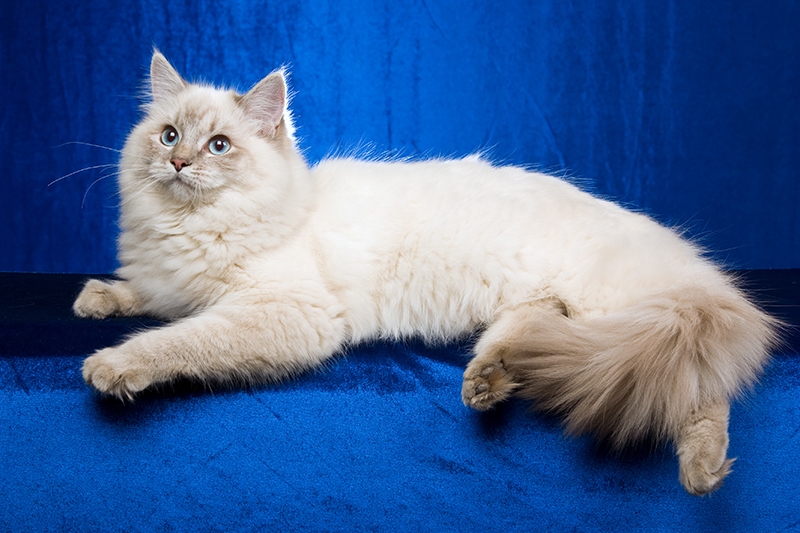Why Does My Cat Poop on My Bed? 8 Vet-Approved Possible Reasons
Updated on
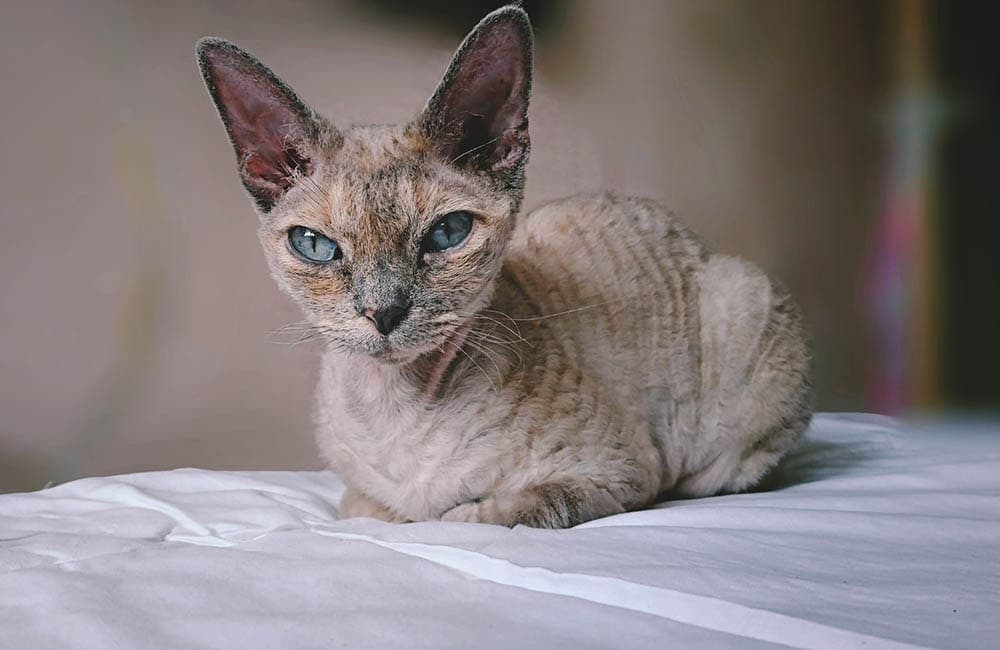
Cats are usually cute and cuddly, but they sometimes display bad behaviors. One example is pooping on the bed. Why on earth would a cat do such a thing? It turns out that there are quite a few reasons that your cat might poop on your bed. We put together a list of eight reasons in hopes that one of these will shed light on your specific situation.
The 8 Reasons Why a Cat Might Poop on the Bed
1. They Are Sick
If your kitty starts pooping on your bed out of the blue and tends to continue doing so without any obvious provocation, chances are that they are dealing with an illness that requires treatment by a veterinarian. For example, if your kitty is suffering from a worm infestation, the ailment can cause diarrhea and they might not have time to make it to the litter box. Other ailments that might be the cause of your cat pooping on your bed include:
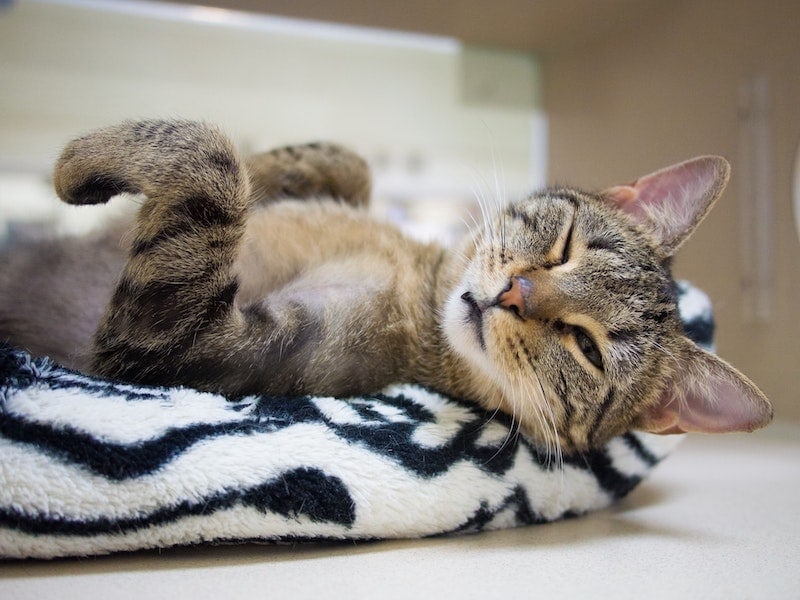
- Inflammatory Bowel Disease: This disease occurs when a cat’s gastrointestinal tract becomes irritated. The irritation leads to inflammation, which in turn, thickens the walls of the gastrointestinal tract. This makes it tough for a kitty to properly digest their food and absorb the nutrients that they need for a happy and healthy life. Inflammatory bowel disease can lead to uncontrollable bowel movements.
- Hyperthyroidism: This is when the thyroid gland becomes enlarged and produces too many thyroid hormones for good health. Non-cancerous tumors are the most likely cause, but cancer and nutritional imbalances can also be culprits. Hyperthyroidism can cause problems like diarrhea.
- Food Allergies: Unfortunately, cats can suffer from food allergies just like humans do. For instance, many cats are lactose intolerant. Food allergies are usually displayed in the form of itching and scratching, but gastrointestinal problems like diarrhea can also occur. If your cat has diarrhea, you can’t expect them to get to the litter box every time they get the urge to go.
- Diabetes: Cats can get diabetes just like humans can. If this happens, an increase in thirst is typical, which can lead to increased urination and even diarrhea. This is not always pleasant for human companions comfortably sleeping in their beds. Veterinarians tend to recommend a diet change for cats that develop type 2 diabetes. If you suspect that your cat has a health problem of any kind due to changes in their behavior (like pooping on the bed or skipping meals), it is a good idea to schedule a checkup appointment with your veterinarian as soon as possible. They should be able to help you pinpoint the problem so it can be properly treated, and you can go back to sleeping soundly in your bed at night.
2. A New Environment Has Been Established
Cats are finicky animals, so it should not be a surprise that a change in their environment would result in behavioral changes. Whether you move to a new home, you buy new furniture, or your family starts arguing more, your kitty is sure to notice the change. If the changes are upsetting to them, they may avoid going to their litter box and instead relieve themselves near their sleeping post, which could be on your bed.
Even if your multiple cats have gotten along together for years, there may come a time when one becomes too old to compete for resources, like space in the litter box. Instead of haggling for a position to use the bathroom, your older cat might decide just to relieve itself in a new self-designated space.
If your older cat hangs back while the others eat, isn’t playing or interacting with the others much, and is pooping on your bed at night, chances are that they are fed up with fighting for space. Consider providing them with their litter box somewhere closer to your bedroom.
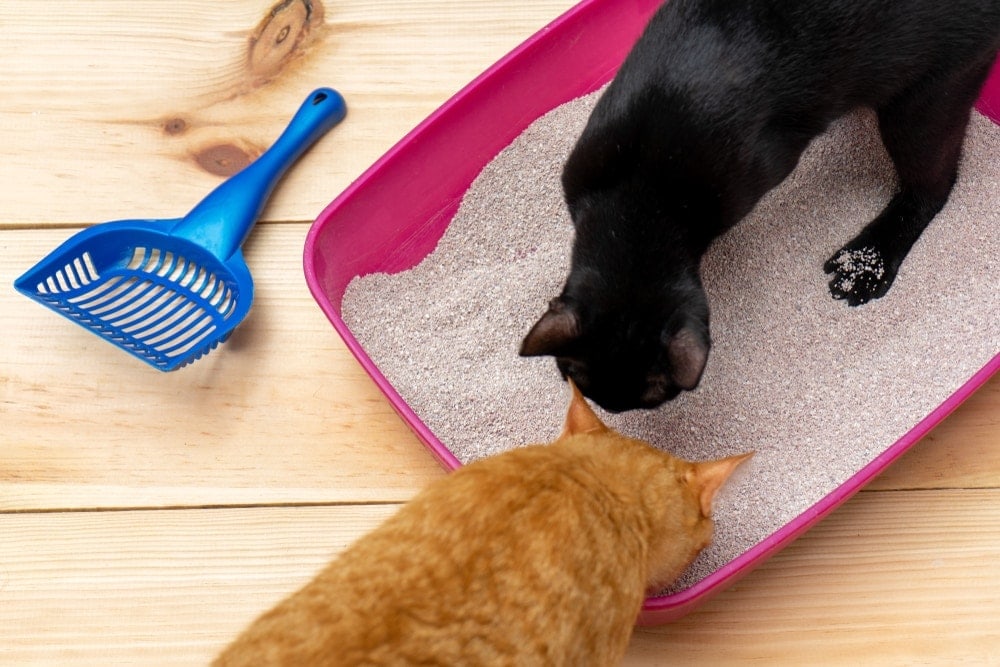
4. The Cat Litter Box Isn’t Satisfactory
The reason for your cat pooping on your bed can be as simple as a dirty litter box. Just because you cannot smell the litter box doesn’t mean it meets your kitty’s expectations. There could be odors and diseases lurking in a dirty cat litter box. The cat litter itself could be so wet that it sticks to your cat’s paws, which is sure to be uncomfortable.
In cases like these, your cat is more apt to just poop on your clean bed, where they feel comfortable. Cleaning your cat litter box out two or three times more often than you do now may be all that is needed to change this unwanted behavior. Another option is to invest in a self-cleaning litter box.
Sometimes even the best litter box setup needs a helping hand in combating invasive smells. Our Hepper Advanced Bio-Enzyme Cat Litter Deodorizer naturally breaks down odors at the source. This effective litter additive can help all types of cat litter last longer, saving you money, and is safe for all life stages. Best of all, it's 100% biodegradable and fragrance-free.
- Bio Enzymatic Cat Litter Freshener - Smart formulation uses natural ingredients eliminating cat...
- Save Money - Stuff for cats isn’t the cheapest. With this litter box odor eliminator, you’ll...
5. They Are Overwhelmed by Stress
Sadly, cats can succumb to stress too. It could arise due to being left at home alone for too long, especially when they’re not used to it, or any number of other factors. If your cat is feeling stressed out, they can display their feelings through vomiting and diarrhea, both of which can end up on your bed. Other signs of stress include excessive grooming, hiding more than usual, and unnecessary aggression toward other animals or people.
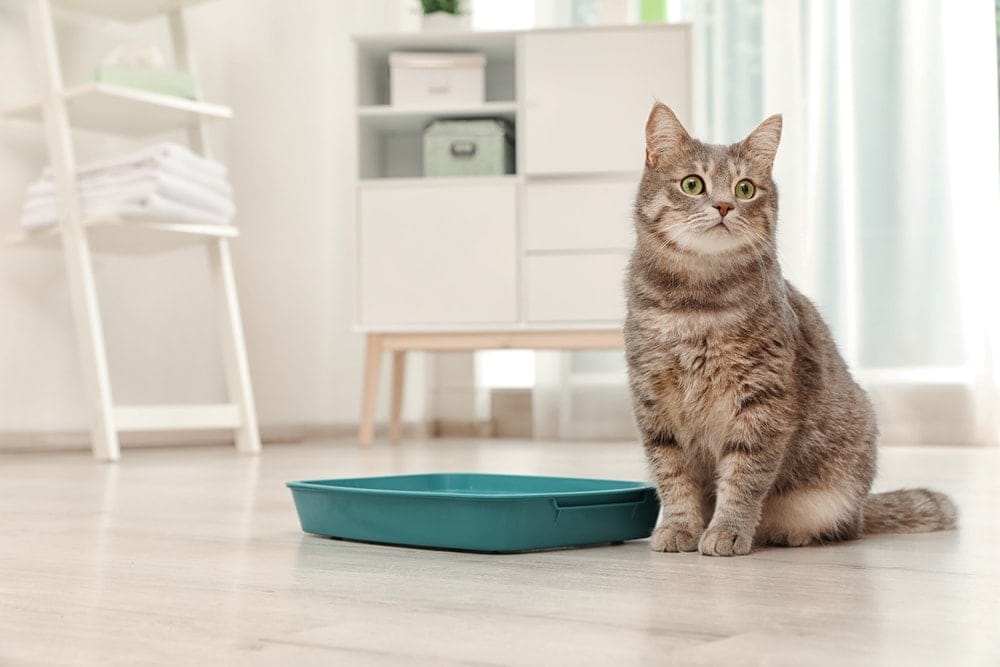
6. It’s a Dirty Habit
Cats tend to be habitual animals, so once they begin a habit, it’s hard for them to break it. Therefore, if your cat poops on your bed one time due to another issue, they may make a habit out of it and do it again for no other reason. This is a dirty habit that you should get your kitty out of as quickly as possible. The easiest way to do this is to keep your cat out of your room until they start using the litter box again. However, this won’t work if there are other underlying reasons that they are pooping on your bed.
7. New Family Members Have Arrived
Whether it is a cat, a dog, or a human, the addition of a new family member can throw a wrench into your cat’s idea of a good life. Suddenly, they are no longer getting as much attention as they used to. Worse still, they must get to know a stranger.
Also, their space will be shared with more bodies. Who would not be disappointed in a situation like this? Over time, though, your cat should find a new groove and become comfortable with the new family addition. At that point, their bathroom habits should go back to normal, and you should not have to worry about a soiled bedspread.
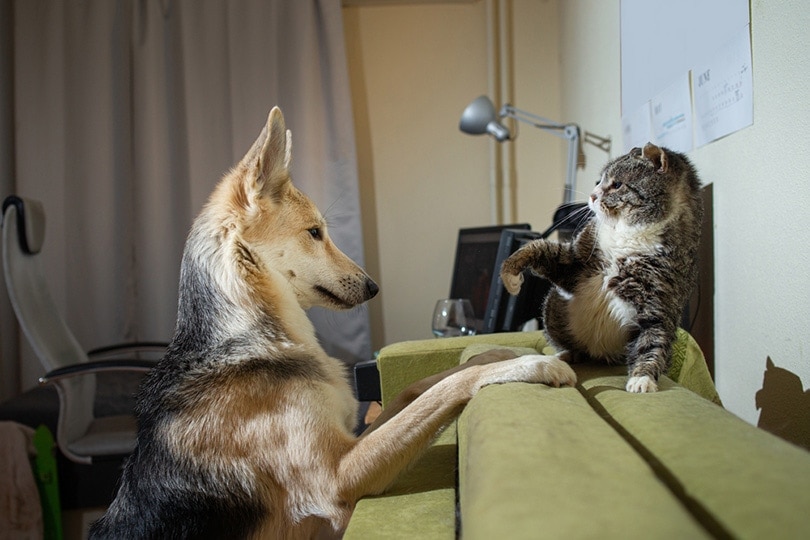
8. Troublemaking Is the Name of the Game
All you have to do is search for cat troublemakers on the internet, and you will be presented with numerous anecdotes and examples. Sometimes, a cat becomes troublesome because they are old and restless. Other cats are young and have a great deal of energy to burn, so they become troublemakers and nuisances.
Bored cats, those that feel like they’re lacking attention, and those that are upset about something going on in their lives can all be troublemakers. Sadly, troublemaker cats can do things like poop on our beds while we’re sleeping or away from home. Finding the cause of the troublesome behavior is the key to correcting it.
Final Thoughts
A cat may poop on the bed at any given time. The only way to ensure that your cat won’t do it is to deny access to your bedroom so they have no choice but to sleep where they can access the litter box. If your kitty does poop on your bed, pay close attention to other signs that might indicate what the issue is. If all else fails, don’t be afraid to contact your veterinarian.
Featured Image Credit: Andrew Brandy, Unsplash






